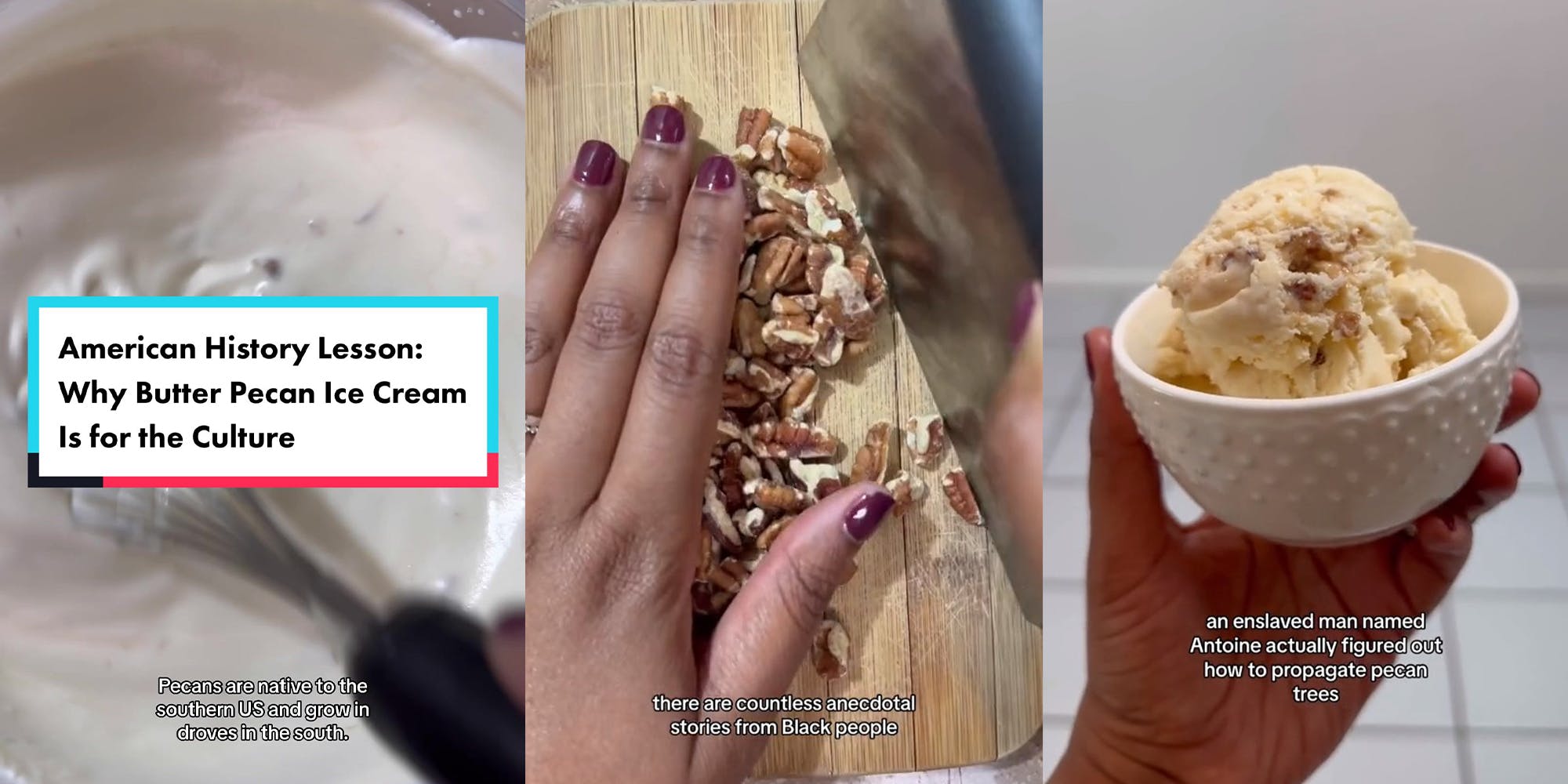Butter pecan ice cream originated out of necessity.
Many Black families have passed down accounts saying that they could not eat and purchase vanilla ice cream in the Jim Crow South when racial segregation was legal.
Nikki (@nikki.mov), who incorporates history lessons in her food content, recently shared the ice cream lore in a viral TikTok video.
“It was a privilege that some white Southerners didn’t believe Black people deserved to have,” Nikki said in the video, which by Tuesday had garnered over 2.5 million views.
@nikki.mov Butter Pecan Ice Cream for the culture! 👏🏾 Recipe in my cookbook (link in bio). #americanhistory #blackhistory #didyouknow #learnontiktok #icecream #butterpecan #desserttiktok #dessert #tiktokfoodie #soulfood ♬ original sound – nikki
Nikki explained that Antoine, an enslaved man from Louisiana, found a way to cultivate pecan trees in the mid-1800s. Pecans were native to the South and therefore easily accessible ingredients, which helped butter pecan become a favorite ice cream flavor among Black people.
“My grandma from Alabama told me this and it was the only ice cream we ate growing up,” user @mariahmichellebr commented. (Nikki did not immediately respond to the Daily Dot’s request for comment.)
While restricting Black people from obtaining vanilla ice cream was never explicitly law, it was the status quo in the Jim Crow South. Christopher Carter, an assistant professor of theology and religious studies at the University of San Diego, told the Daily Dot that “vanilla” and “whiteness” are words associated with purity.
Vanilla ice cream was thus a privilege that not everyone could publicly enjoy.
“It’s all about what you can and cannot do in front of white people,” Carter said. “Because when you are a person of color and you’re enjoying yourself, you’re having fun, you’re smiling, that’s not really—at that time especially—what they [white people] would have wanted to see.”
Darryl Goodner, co-owner of Louisville Cream in Kentucky, said he started the Butter Pecan Podcast with a friend from the ice cream shop in 2020 after noticing that a lot of their Black customers would order their bourbon pecan flavor. Many of their podcast episodes dove into historically racist tropes in food.
“There is always an undercurrent of racism even in the most seemingly benign issues like ice cream,” Goodner told the Daily Dot. “Butter pecan is indicative of a lot of things about Black people as a culture: When you don’t have this option, you figure out the other one.”
Butter pecan ice cream’s origins reflect just a fraction of food made and propagated by Black Americans. Some foods brought to America from Africa include watermelon, okra, and coffee. Carter said that Black people were enslaved because of their agricultural and animal husbandry skills, and their African American cuisine—popularly known as “soul food”—represents their collective stories over time.
“This food is reflective of the experiential wisdom our people have, and it has enabled us to survive systemic oppression,” Carter said. “Soul food has always been a way of maintaining a sense of identity and self-determination. It has, within it, a story of survival.”
Goodner encouraged more people to learn about food history and its intersections with race and social justice. He said that food can create a shared avenue for these discussions.
“That way, you can understand people, why we do things, why we want things, and why we behave this way,” Goodner said. “When you start to look at the minutiae of those things, you start to see that we’re very similar. And if we’re not, there’s an institution causing that.”
Sign up to receive the Daily Dot’s Internet Insider newsletter for urgent news from the frontline of online.
Source: https://www.dailydot.com/irl/butter-pecan-ice-cream/